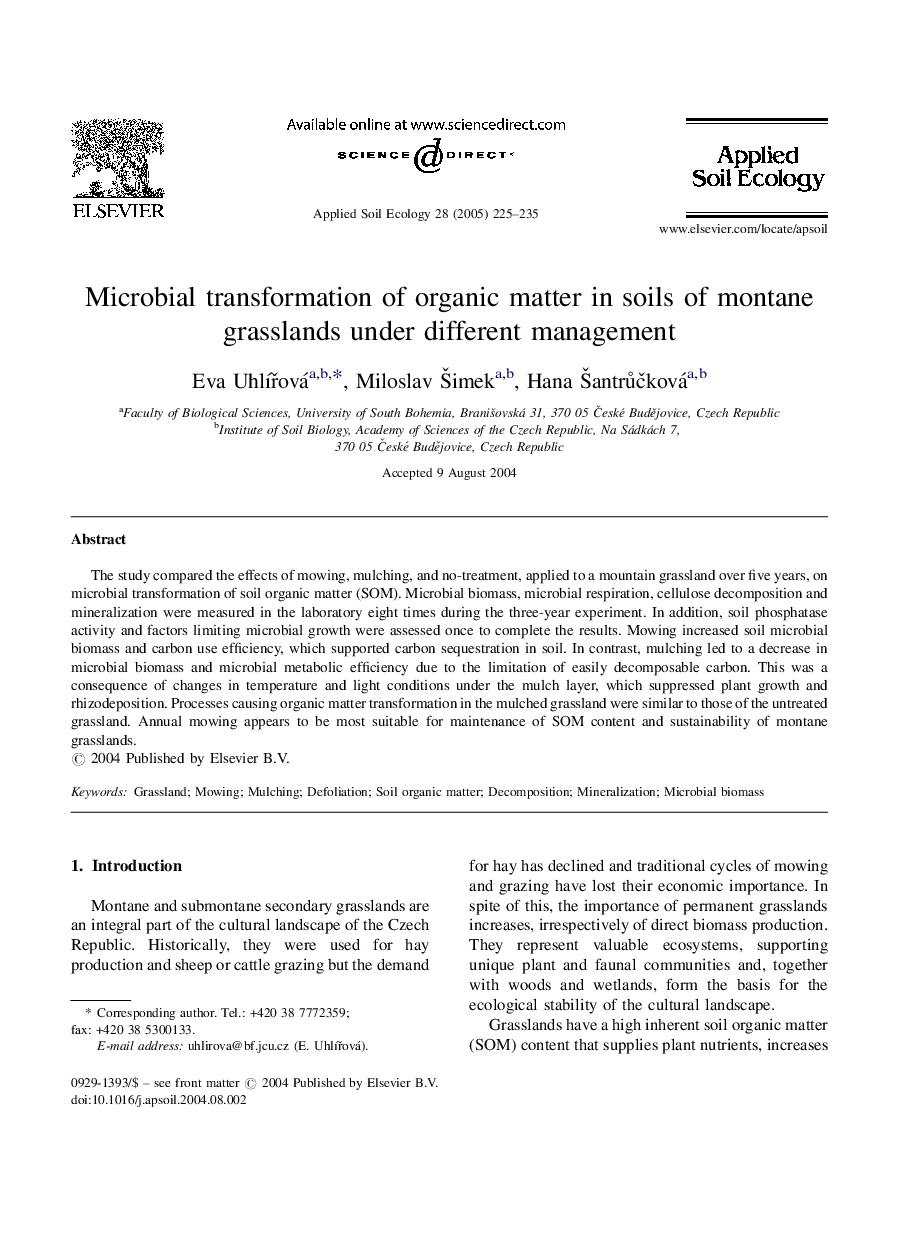| Article ID | Journal | Published Year | Pages | File Type |
|---|---|---|---|---|
| 9445252 | Applied Soil Ecology | 2005 | 11 Pages |
Abstract
The study compared the effects of mowing, mulching, and no-treatment, applied to a mountain grassland over five years, on microbial transformation of soil organic matter (SOM). Microbial biomass, microbial respiration, cellulose decomposition and mineralization were measured in the laboratory eight times during the three-year experiment. In addition, soil phosphatase activity and factors limiting microbial growth were assessed once to complete the results. Mowing increased soil microbial biomass and carbon use efficiency, which supported carbon sequestration in soil. In contrast, mulching led to a decrease in microbial biomass and microbial metabolic efficiency due to the limitation of easily decomposable carbon. This was a consequence of changes in temperature and light conditions under the mulch layer, which suppressed plant growth and rhizodeposition. Processes causing organic matter transformation in the mulched grassland were similar to those of the untreated grassland. Annual mowing appears to be most suitable for maintenance of SOM content and sustainability of montane grasslands.
Keywords
Related Topics
Life Sciences
Agricultural and Biological Sciences
Ecology, Evolution, Behavior and Systematics
Authors
Eva UhlÃÅová, Miloslav Å imek, Hana Å antrůÄková,
